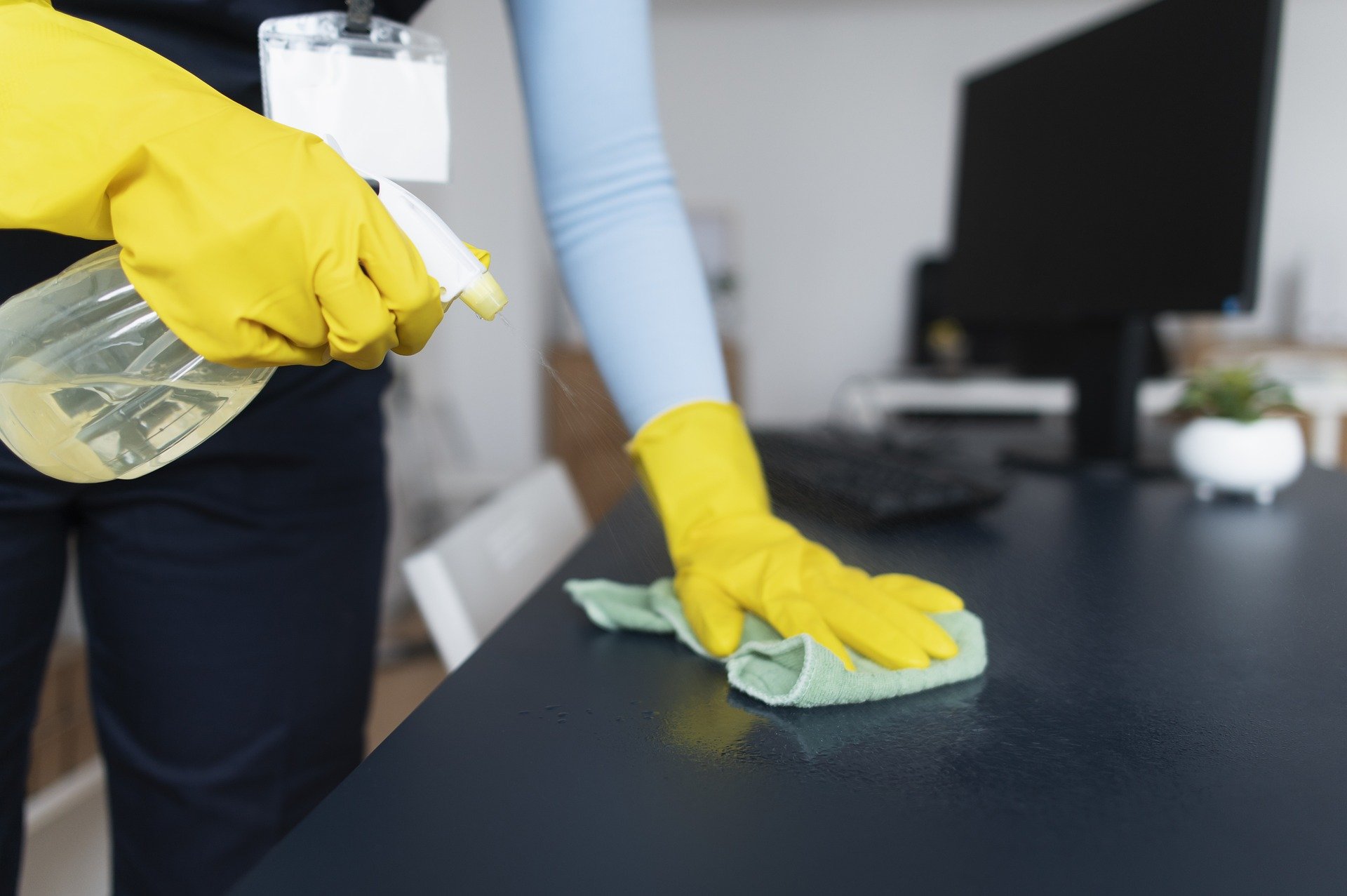Cleaning Jobs Worldwide: Roles and Earnings
The cleaning industry represents a significant employment sector across the globe, providing opportunities for workers with various skill levels and experience. From residential housekeeping to specialized industrial cleaning, this field encompasses diverse roles that serve essential functions in maintaining hygiene standards in homes, businesses, healthcare facilities, and public spaces. The demand for cleaning professionals remains relatively stable even during economic downturns, as cleanliness and sanitation are considered fundamental necessities. This article explores the various cleaning occupations available worldwide, examines typical compensation structures, and discusses why cleaning services continue to be in demand across different regions and economies.

Types of Cleaning Jobs Available Worldwide
The cleaning industry offers a remarkably diverse range of positions catering to different environments and specializations. Residential cleaning positions involve maintaining private homes, apartments, and vacation properties, often working directly with homeowners or through cleaning agencies. Commercial cleaning roles focus on office buildings, retail spaces, and business premises, typically operating during evening hours or weekends to minimize disruption. Industrial cleaning specialists handle factories, warehouses, and manufacturing facilities, often requiring knowledge of specific equipment and safety protocols.
Specialized cleaning positions include healthcare facility cleaners who must follow strict infection control protocols in hospitals and medical centers. Hospitality cleaning staff maintain hotels, resorts, and cruise ships to high standards of cleanliness for guest satisfaction. Educational institution cleaners work in schools, colleges, and universities, ensuring safe and hygienic learning environments. Environmental remediation technicians focus on hazardous material cleanup and specialized sanitization scenarios, requiring additional certifications and training.
Post-construction cleaning requires attention to debris removal and final preparations before building occupancy. Transportation cleaners maintain vehicles such as airplanes, trains, buses, and rental cars. Disaster restoration cleaning involves addressing water damage, fire damage, and other emergency situations. Each of these specialized areas involves specific skills, tools, and sometimes certifications to ensure proper execution of cleaning duties.
Average Salary Ranges in the Cleaning Sector
Compensation in the cleaning industry varies significantly based on factors including location, specialization, experience level, and employment structure. Entry-level cleaning positions such as housekeeping staff typically earn near minimum wage in most countries, ranging from approximately $10-15 USD per hour in North America, €8-12 in Western Europe, and varying considerably in other regions. Supervisory cleaning roles generally command 20-40% higher wages than baseline positions, with cleaning managers potentially earning annual salaries between $30,000-50,000 USD in developed economies.
Specialized cleaning roles often offer higher compensation due to required training or hazardous conditions. Biohazard cleanup specialists may earn $18-25 per hour, while industrial cleaning technicians typically receive $15-22 per hour depending on the complexity of machinery and potential hazards involved. Healthcare facility cleaners often earn premium rates due to infection control responsibilities, typically 15-30% above standard commercial cleaning rates.
Self-employed cleaning professionals and cleaning business owners have greater income variability, with experienced entrepreneurs potentially earning $40,000-80,000 annually after expenses. Geographic location significantly impacts earning potential, with metropolitan areas and wealthy regions typically offering higher rates than rural locations. Experience level also influences compensation, with long-term cleaning professionals often commanding 20-50% higher wages than newcomers to the profession.
Prices, rates, or cost estimates mentioned in this article are based on the latest available information but may change over time. Independent research is advised before making financial decisions.
Why the Cleaning Industry Remains in Demand Globally
The cleaning industry’s persistent demand stems from several fundamental factors affecting societies worldwide. Health and hygiene awareness has intensified significantly, particularly following global health concerns like the COVID-19 pandemic, leading organizations and individuals to increase cleaning frequency and standards. Urbanization continues to create more commercial and residential spaces requiring regular maintenance, driving demand for cleaning services in growing metropolitan areas across all continents.
Regulatory requirements for sanitation in food service, healthcare, childcare, and other sectors create mandatory cleaning needs that sustain industry demand regardless of economic conditions. Time constraints faced by working professionals, dual-income households, and businesses drive outsourcing of cleaning tasks to specialized service providers, particularly in economically developed regions with higher disposable incomes.
The commercial real estate sector maintains consistent cleaning requirements to preserve property values and tenant satisfaction, creating stable employment opportunities. Tourism and hospitality industries require rigorous cleaning protocols to maintain competitive guest experiences and positive reviews, supporting cleaning jobs in tourist destinations globally. Additionally, specialized niches such as crime scene cleanup, hoarding remediation, and environmental cleaning continue to develop as awareness of these services grows.
The industry’s accessibility for entry-level workers provides important employment opportunities for those with limited formal education or newcomers to a region. Many cleaning positions offer flexible scheduling options, part-time opportunities, and geographical mobility, creating versatility that meets diverse worker needs while fulfilling essential market demands worldwide.
Comparison of Cleaning Job Categories and Earnings
The following table provides an overview of common cleaning occupations and their typical earnings across different regions:
| Cleaning Job Category | Typical Hourly Rate (USD) - North America | Typical Hourly Rate (EUR) - Western Europe | Specialization Requirements |
|---|---|---|---|
| Residential Cleaner | $12-18 | €9-15 | Basic cleaning skills, reliability |
| Commercial Cleaner | $13-20 | €10-16 | Equipment operation, efficiency |
| Healthcare Facility Cleaner | $14-22 | €12-18 | Infection control protocols |
| Biohazard Remediation | $18-30 | €15-25 | Certifications, hazmat training |
| Hotel Housekeeping | $12-17 | €9-14 | Attention to detail, efficiency |
| Industrial Cleaner | $15-25 | €12-22 | Equipment knowledge, safety training |
| Supervisory Positions | $17-28 | €14-24 | Management skills, experience |
Prices, rates, or cost estimates mentioned in this article are based on the latest available information but may change over time. Independent research is advised before making financial decisions.
The cleaning industry provides diverse employment options across multiple specializations and skill levels. While entry barriers are relatively low for basic positions, advancement opportunities exist through specialization, supervision roles, or entrepreneurship. The essential nature of cleaning services ensures ongoing global demand, though compensation varies significantly by region, specialization, and experience level. Understanding the industry’s structure and requirements helps individuals assess potential career paths within this consistently necessary field.




